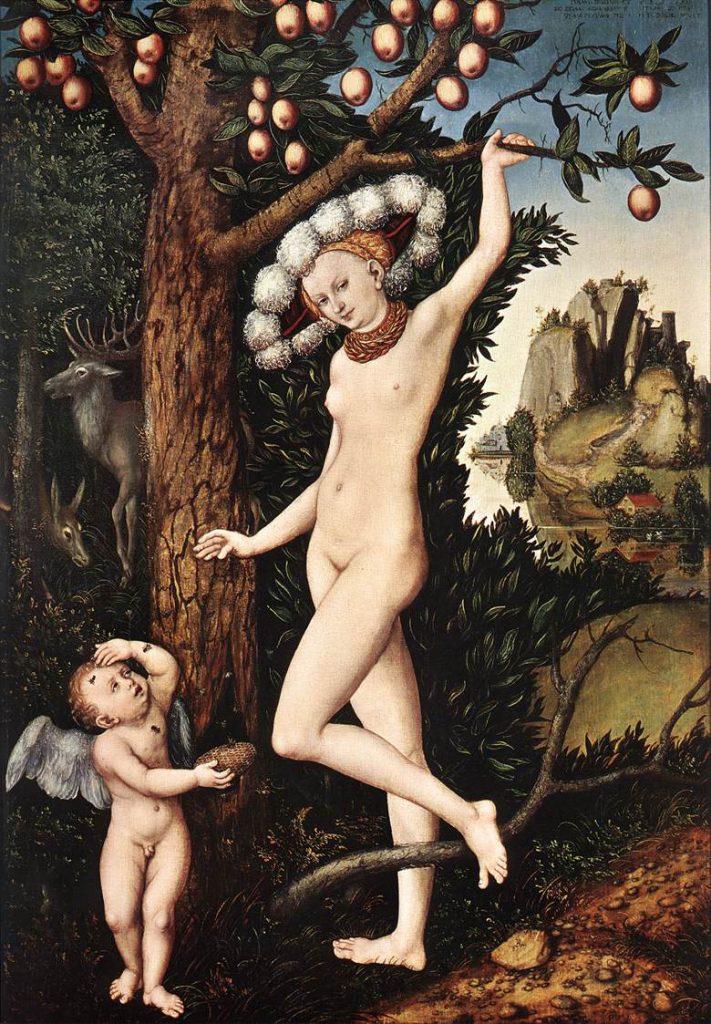CERES Tell me, heavenly bow,
If Venus or her son, as thou dost know,
Do now attend the queen? Since they did plot
The means that dusky Dis my daughter got,
Her and her blind boy’s scandaled company
I have forsworn.
IRIS Of her society
Be not afraid. I met her deity
Cutting the clouds towards Paphos, and her son
Dove-drawn with her. Here thought they to have done
Some wanton charm upon this man and maid,
Whose vows are that no bed-right shall be paid
Till Hymen’s torch be lighted, but in vain.
Mars’s hot minion is returned again;
Her waspish-headed son has broke his arrows,
Swears he will shoot no more, but play with sparrows
And be a boy right out. (4.1.86-101)
This sounds like a bit of inter-goddess rivalry: is Venus coming too? Is she with Juno already? Because if Venus (and Cupid) are part of this, then I’m not coming; it was Venus and Cupid who enabled Dis, or Pluto, to kidnap Proserpina, Ceres’ daughter, who now must spend six months of the year in the underworld, during which time the earth is barren. Since they did that, I have sworn never to see them again, says Ceres. (Cupid is often portrayed as wearing a blindfold; he is not visually impaired. The eye all too easily slips into a default classicism, and reads sandalled, rather than scandaled, but the allusion is to scandalous conduct, the facilitation of a rape, rather than Greco-Roman fashions in footwear.) But don’t worry, Venus isn’t invited, says Iris; I’ve had a mid-air encounter with them, en route (at some speed? cutting the clouds) back to Paphos (on Cyprus, the island sacred to Venus), in their dove-drawn chariot. They were coming here to make mischief, to undermine the promises that this man and maid, Ferdinand and Miranda, have made—that no bed-right shall be paid till Hymen’s torch be lighted, that is, that they won’t have sex until they’re married (Hymen, god of marriage, carries a burning torch or lamp)— with some wanton charm– but they’re out of luck. (This is also telling the audience that Venus and Cupid are not going to appear in this masque.) Mars’s hot minion (a somewhat arch description of Venus; hot minion is not complimentary – mistress, paramour, bit on the side) has gone back to her place, and her waspish-headed son has broken his arrows, petulantly. Cupid is waspish-headed here because he stings with his arrows, maliciously, and he’s hot-headed, temperamental; it’s also an allusion to the story of Cupid being stung by bees when he steals honey and goes crying to his mother that It’s Not Fair (see below). But he’s now going to give up this god of love business, making people fall in love by shooting them; instead he’s going to play with sparrows (known for their lustiness, and sacred to Venus) and be a boy right out, be a proper boy. (Both Ceres and Iris are speaking in rhyming couplets. But their syntax remains distinctive, I think; Ceres is much easier to follow!)


